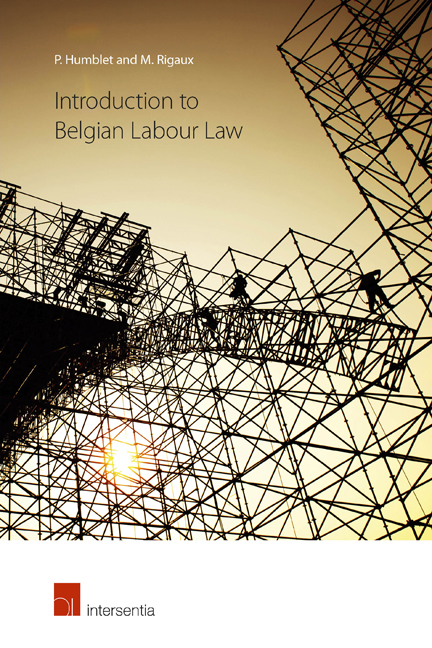Book contents
- Frontmatter
- Preface
- Contents
- List of Abbreviations
- PART I EMPLOYMENT LAW
- I THE CONTRACT OF EMPLOYMENT
- II CONCLUDING THE CONTRACT
- III EMPLOYMENT
- IV TERMINATION OF EMPLOYMENT
- V SPECIAL AND DEVIATING TYPES OF EMPLOYMENT CONTRACTS
- PART II INDUSTRIAL RELATIONS LAW
- I FREEDOM OF ASSOCIATION
- II TRADE UNIONS AND EMPLOYERS’ ASSOCIATIONS
- III INSTRUMENTS FOR SOCIAL DIALOGUE
- Chapter 1 General Overview
- Chapter 2 Structured Bipartite Negotiation
- Chapter 3 The Union Delegation
- Chapter 4 Supranational Consultation
- Chapter 5 Collective Labour Agreements
- IV FUNDS FOR SOCIAL SECURITY
- V INDUSTRIAL ACTION
- In Cauda
- General Bibliography
- E-addresses
Chapter 4 - Supranational Consultation
from III - INSTRUMENTS FOR SOCIAL DIALOGUE
Published online by Cambridge University Press: 13 December 2017
- Frontmatter
- Preface
- Contents
- List of Abbreviations
- PART I EMPLOYMENT LAW
- I THE CONTRACT OF EMPLOYMENT
- II CONCLUDING THE CONTRACT
- III EMPLOYMENT
- IV TERMINATION OF EMPLOYMENT
- V SPECIAL AND DEVIATING TYPES OF EMPLOYMENT CONTRACTS
- PART II INDUSTRIAL RELATIONS LAW
- I FREEDOM OF ASSOCIATION
- II TRADE UNIONS AND EMPLOYERS’ ASSOCIATIONS
- III INSTRUMENTS FOR SOCIAL DIALOGUE
- Chapter 1 General Overview
- Chapter 2 Structured Bipartite Negotiation
- Chapter 3 The Union Delegation
- Chapter 4 Supranational Consultation
- Chapter 5 Collective Labour Agreements
- IV FUNDS FOR SOCIAL SECURITY
- V INDUSTRIAL ACTION
- In Cauda
- General Bibliography
- E-addresses
Summary
The European Works Council
The provisions of Directive 94/45/EC to promote the right to information and consultation of workers in undertakings and groups of undertakings in the European Union and the European Economic Area were transposed into Belgian law by Collective Labour Agreement No. 62 of 6 February 1996. Two additional laws of 23 April 1998 dealt with the protection against dismissal of employee representatives and the confidential nature of information communicated by the enterprise. The new Directive 2009/38/EC was transposed into Belgian labour law by Collective Agreement No. 101 of 21 December 2010. This collective agreement is largely similar to the Directive.
Employees’ representatives in the European Company
Council Directive 2001/86/EC of 8 October 2001, which regulates the cooperation between companies and employees’ organisations in the Societas Europaea, was transposed by the Royal Decree on Labour Relations of 1 September 2004. The Directive was transposed by the National Labour Council on 6 October 2005 by way of Collective Labour Agreement No. 84. Simultaneously, Collective Labour Agreement No. 62ter incorporated Article 3bis into Collective Labour Agreement No. 62 on the establishment of a European Works Council. When a company complies with the conditions of Collective Labour Agreement No. 84, a European Works Council no longer has to be set up separately.
The role of employees in a European Cooperative Society (SCE)
Directive 2003/72/EC of 22 July 2003 supplementing the statute of a European Cooperative Society with regard to the role of employees was implemented by Collective Agreement No. 88 of 30 January 2007. Basically, the regulation is nearly analogous to that of Collective Labour Agreement No. 84.
- Type
- Chapter
- Information
- Introduction to Belgian Labour Law , pp. 229 - 230Publisher: IntersentiaPrint publication year: 2016



